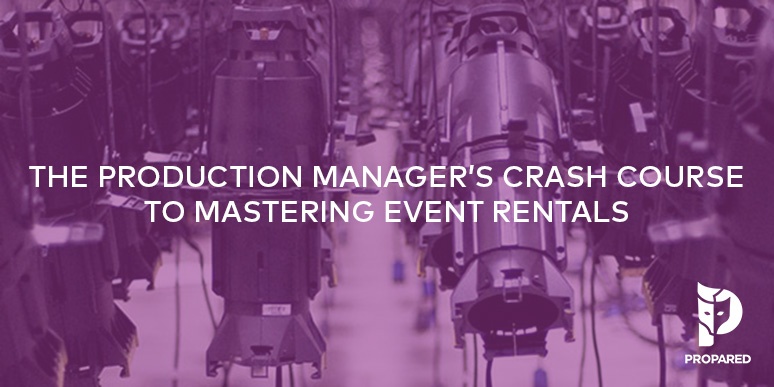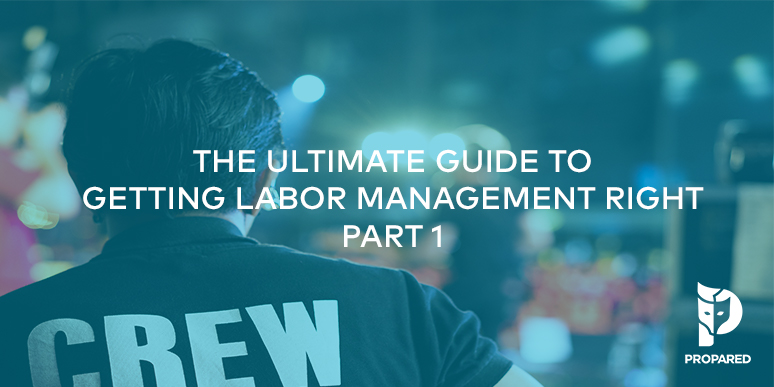
Being a production manager is tough. No matter the circumstances of a project, you are constantly juggling the demands of multiple stakeholders – the crew, the client, your suppliers and many others! – while trying to keep everything on task and moving forward.
A few weeks ago, I was thrilled to share some of my tried and true event management tips with the good folks at Vectorworks. As I finished writing that article, I realized I had so much more to share on the subject! So this post, in a way, is my Part 2. Here are 7 tips to help you successfully tackle your next gig.
1. Get There Before Your Team
No one wants to wait on the team lead. Getting to the job early gives you time to mentally focus and prep before your team arrives, setting a positive tone for the day. If you are feeling rushed, everyone is going to feel rushed as well.
2. Prioritize How You Respond to Issues
There is always more to do on site than time allows. However, there are certain issues that, should they arise, need to jump to the front of the line; emergencies and safety concerns, for example. On a daily basis, you need to identify:
-
what is mission critical and needs immediate attention
-
what is critical but can be absorbed into the regular flow of the work day
-
what needs to be reviewed and addressed but is not critical to the day’s work
Focus on balancing these three types of tasks. It allows you to proactively address issues when they arise and change course without losing momentum.
3. Delegate Fully and Comprehensively
Anything you need done should be assigned. If you didn’t assign it and it doesn’t get done, that’s on you.
4. When Passing Off Leadership, Leave No Stone Unturned
If you ever leave the job site, write down what’s completed and what’s in progress. Make sure the person staying to assume the lead has that information. Answer any outstanding questions before you go. You are likely tired and ready to go home after a long day. But missing this critical step will often leave you with many more pains in the long run. Take the few extra minutes to cover all your bases.
5. There is No One Way to Communicate Effectively
Every project brings together new people and personalities, requiring managers to assess and determine the best ways to communicate information. What worked on a previous job may be disastrous on the next. Instead, be flexible! Assess your team and ask questions rather than lay down pre-determined edicts.
6. There is a Difference Between Crew Speak and Client Speak
Often, the client is unaware of the terminology we use in the industry to describe certain technical elements, needs, job duties, problems, etc. Know who you are talking to before you begin speaking. If speaking with a client, be direct and straightforward. Confusion can lead to stress, panic, and potentially unnecessary breakdowns in trust.
7. Take Time for Self-Reflection and Evaluation After Each Project
Every job provides an opportunity to grow and get better. At the close of every project, debrief with your team. Be honest with yourself about what worked and more importantly, what didn’t. Engage your team whenever possible and ask for their feedback. Assess the tools you used: how did they work, what can you use again, and what needs to be replaced? Constantly hone your craft and continue to learn. There are always new techniques and event technology tools that can keep you at the top of your game. Complacency breeds mediocrity.
Over my career, I have learned from some of the best in the business. But I can also say that this list changes a bit every year. As I continue to evolve and grow as a production manager, I learn new and better ways to deliver better events for my clients. You will, too!
Production managers – what tips could you offer that have made managing your events more successful? Share them with us in the comments below.



